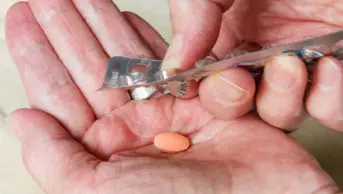
Shutterstock.com
Study results show that statins could provide a cost-effective benefit for patients aged over 70 years, despite concerns raised in earlier research that this would be offset by adverse effects.
The study, published in Heart on 10 September 2024, used modelling to simulate the risk of future heart disease in 20,122 patients with and without prior cardiovascular disease (CVD).
Researchers gathered the study population from participants in the UK Biobank and the Whitehall II cohort studies, who were aged over 70 years. The cohort included 15,019 participants without CVD (52% men; mean age 72.5 years) and 5,103 with a history of CVD (66% men; mean age 72.9 years).
A microsimulation model was used to project cardiovascular risks, survival, quality-adjusted life years (QALYs) and healthcare costs for participants with and without standard or higher intensity statin therapy.
The results suggest that both standard and higher intensity statin therapies enhanced health outcomes, with higher intensity therapy achieving larger benefits and were cost-effective in people aged over 70 years in the UK.
In men and women over 70 years with and without prior CVD, the researchers found that lifetime use of a standard statin therapy increased QALYs by 0.24–0.70 per person. A higher intensity statin therapy increase QALYs by a further 0.04–0.13 per person.
The model also found that statin therapies were cost-effective with the incremental cost per QALY gained for standard statin therapy compared with no statin, ranging from £116 to £3,502.
The cost per QALY gained for higher intensity therapy compared with standard statin therapy ranged from £2,213 to £11,778.
“Previous evidence has indicated that statin therapy is likely to be cost-effective for older people, but the estimates were sensitive to further adverse effects of statins or lower statin effectiveness,” the researchers explained.
However, they added: “This study reports that statin therapy is highly likely to be cost-effective in older people, although there was greater uncertainty among older people without CVD in scenario analysis with substantially smaller CVD risk reductions with statin therapy.
“While further randomised evidence will be helpful, the robustness of these findings indicates that older people are likely to benefit cost-effectively from statin therapy and should be considered for treatment.”
Sonya Babu-Narayan, associate medical director at the British Heart Foundation and a consultant cardiologist, commented: “This large population study suggests that, for older people, being on a statin was linked to an increase in healthy life years and is cost effective.
“That’s important not least because we in the UK have an ageing population who want to live healthier for longer.
“Statins could be an important ‘primary prevention’ for heart attack and stroke, devastating and deadly events which can be disabling for those who survive.”
However, Babu-Narayan added: “The study is an observational modelling study so cannot determine the causes of the associations seen, and findings in the volunteers may not be representative for all.
“Nevertheless, it does show that there may be lifetime benefits for [people aged over 70 years] at a population level.”
Paul Wright, consultant cardiovascular pharmacist at Barts Heart Centre, told The Pharmaceutical Journal that the research was a “great study looking into a growing group of patients that has previously been data poor”.
“[The findings are] generally consistent with contemporary data although the benefits of statins are reduced slightly compared to their younger counterparts and less so in those without established CVD — an outcome not unsurprising in those [aged] over 70 years.
“In practice, this gives confidence that there is benefit of statin therapy in the older cohort and future RCTs due for publication in 2026 will help to definitively answer this increasingly common query.”


